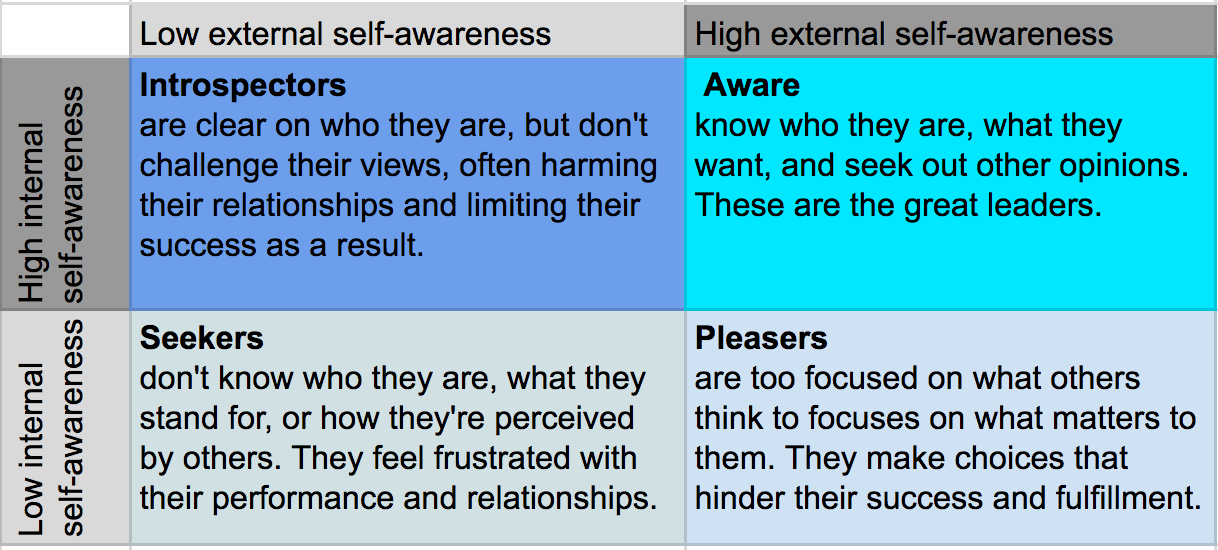Do you consider yourself fairly self-aware?
Most people do.
The irony? Most people aren’t.
In fact, according to Tasha Eurich and her team at executive development firm The Eurich Group, only about 10-15% of people actually exhibit what they categorise as self-awareness.
That could prove a big issue for you, as well as your business.
Why Does Self-Awareness Matter?
Think about all the skill and knowledge that goes into the most critical elements of both your personal and professional life.
There are more of them than you probably realise, and applying them to ensure the best results takes experience and expertise.
However, experience is not something we inherently learn from, and expertise often leads to an overestimation of understanding. Combine that with a sense of power – say, the authority that comes with a leadership role – and it’s easy to find ourselves resting on our laurels.
Self-awareness is how we avoid that. It is the key quality found in all individuals whose careers propel across an ever-increasing projectory. More than helping these people recognise what they want, it grants them insight into who they are, identifies the gaps in the road to their destination, and gives them the courage to carry on with confidence.
As Eurich notes, self-awareness has been proven a fundamental trait for those who want to be more creative, make better decisions, build stronger relationships, and lead with integrity and respect.
So How do I Become More Self-Aware?
The prefix might suggest self-awareness is a solely internalised trait, but Eurich’s research found that external influences play such a strong role in establishing it that there are actually two forms of self-awareness.
The first is internal self-awareness. It’s that aspect of ourselves through which we identify our passions, our goals, our values, how comfortable we feel in our environment, and how we react to stimuli. Satisfaction, drive, anxiety, depression; these are all results of our internal self-awareness.
The second is external self-awareness. It takes form when we seek to determine how others view us, and the parts of ourselves that define our internal-self awareness. External self-awareness is the backbone of empathy and communication.
How these two forms combine define the kind of person you are.
Becoming high in each form of self-awareness requires great introspection. But not quite the kind of introspection you’re likely used to.
Where do most of us start when seeking to understand the truth of a situation?
The question why.
Why don’t I want to approve that proposal made by employee X?
Why do I find myself tuning out during marketing meetings?
Why won’t anyone buy my product?
Starting with why is never a good idea, but especially not here.
We simply don’t have the ability to tap into our unconscious to find the true answer, so we have no choice but to make our best guess.
Before long, our best guess is fact, and any evidence to the contrary is purposefully ignored in order to defend our pride from the realisation that our assumption was totally off.
No wonder people who make a point of asking themselves why all the time tend to have poorer mental and physical health.
So, what question should we be asking ourselves?
What.
What needs to be amended in employee X’s proposal for me to approve it?
What is lacking in our marketing that even I can’t engage with it?
What elements of my sales pitch need to be improved for me to sell my product?
See the difference?
Why asks you to rationalise. What asks you to open your mind to new possibilities. The difference is hugely significant.
Look within, identify what is holding you back, and what you can do to overcome it.
By developing this process of self-awareness, you are setting yourself on the path of all great leaders. The rest is up to you.

